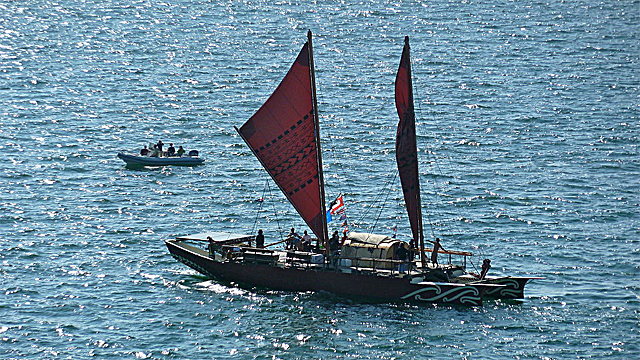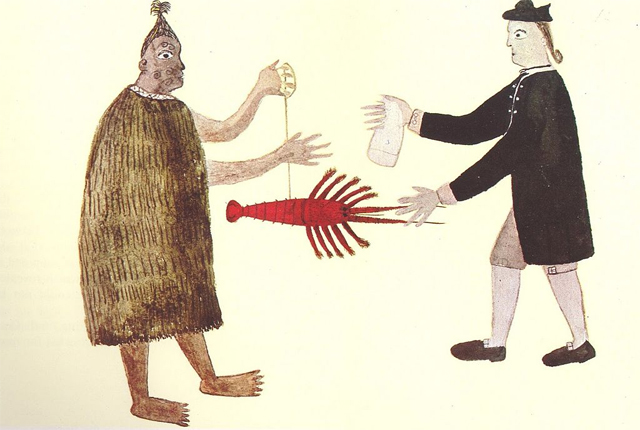Gerard Hindmarsh traveled from New Zealand to the Society Islands last week to pursue his obsessive investigation of the sea-faring traditions of the Tahitian people. The author of an article early last year about Polynesian oceanic travel 800 years ago updated his findings with another report on May 5.

A highlight of his recent trip was the opportunity to meet with the crew of the Fa’afaite, a modern replica of a traditional sea-going canoe. The 22-meter, double-hulled vessel will participate in the commemoration next year of the 250th anniversary of James Cook’s first exploring voyage into the Pacific. However, the Tahitians told Hindmarsh that they were really more interested in celebrating the achievements of Tupaia, a great Tahitian priest and navigator who sailed with Cook.
While much of the piece last week provided additional details Hindmarsh has uncovered relating to the history of the large sailing canoes, one story he related provides insight into the character of Tupaia. Captain Cook took him aboard in Ra’iatea to help with navigation through the Society Islands and elsewhere in the Pacific. But more than just a pilot, Tupaia helped the British diplomatically when they got into encounters with the Polynesians that could have been serious. Before they left Ra’iatea, the Tahitian navigator showed the British explorers the enormous field of stone works, their sacred marae known as Taputapuatea.

While they were visiting the site, Sir Joseph Banks, the prominent British naturalist who accompanied Cook on the voyage, ignorantly thrust his hand into a “god-house” and groped the tapa-wrapped god inside. Tupaia probably saved the lives of the British, according to Hindmarsh, with fast talking diplomacy that successfully smoothed over the potentially nasty incident. The writer said he felt “spooked” there, as the guide had warned the visitors when they arrived at the site, “Don’t be surprised if you don’t feel ‘heavier’ tonight, so much has gone on here.” Tupaia sailed with the Cook expedition throughout the Pacific but he died of a disease before the ship reached England.